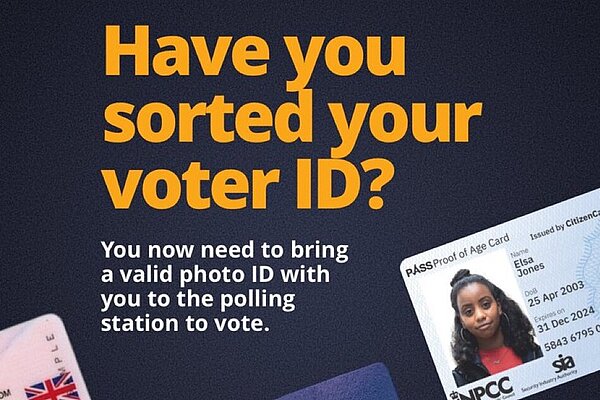This is supposed to stop voter fraud- but in the last 10 years there have only been a hand full of cases of impersonation fraud at polling stations nationally.
These new government rules are a way to restrict people from voting- don't let them steal your vote!
See below for more details

Your ID needs to be the original. It cannot be a photocopy, or pictures of ID on mobile phones. If you have one of these IDs, but it is out of date, you can still use it to vote at a polling station if it still looks like you.
Acceptable ID can be:
-
A passport.
-
A driving licence (including provisional licence).
-
Blue Badge.
-
Identity card with PASS mark (Proof of Age Standards Scheme).
-
Certain concessionary travel cards.
-
Biometric immigration document.
-
Defence identity card.
-
National identity card.
If you don’t have photo ID, you have missed the deadline to apply for a free Voter Authority Certificate and you will not be able to vote in tis election. To apply for future elections, please visit the Gov.uk website
Postal voters will not be affected and will be issued with their postal ballot papers as usual. If you choose to vote by proxy then the person who will vote on your behalf will have to take their own photo ID to the polling station.
Other forms of ID are acceptable. The Electoral Commission website contains a full list of accepted forms of photo ID and further information about the introduction of voter ID.
Althought the application deadline for postal votes for the elction on 4th May has passed, you can still apply for future elections